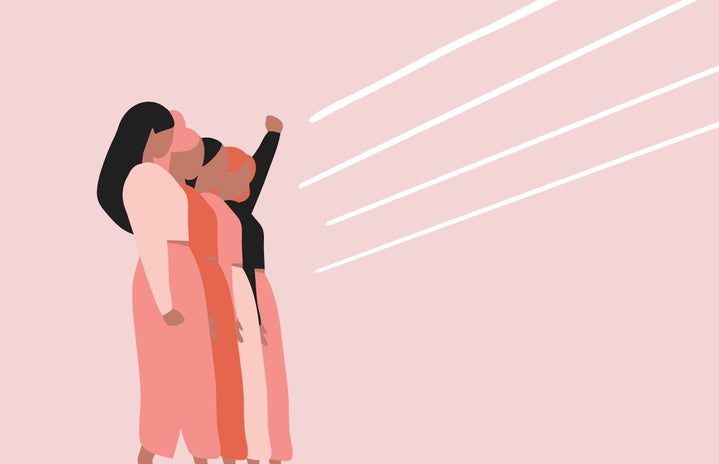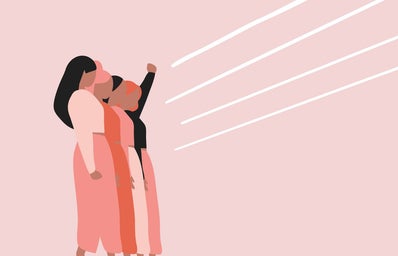Content Warning: Sexual Harassment and Assault
On March 3, 2021, a 33-year old London resident, Sarah Everard, went missing. She was walking home from a friend’s house in Clapham alone. After two days had passed with no indication of Everard’s whereabouts, her family and police became increasingly concerned. The last sighting of Sarah had been on a doorbell camera around 9:30 pm GMT. Nearly over a week later, the remains of her body were identified in Kent Woodlands, and Wayne Couzens, a Metropolitan Police officer who has been accused of kidnapping and killing her, has been taken into custody. It is a devastating reality that has shocked residents of the UK as well as around the world for a number of reasons.
Prominently, the feelings that have come from this horrifying news, is that women are never truly safe. It is a fear that women have ingrained in themselves, but in events like this, it is earth-shattering and too close to home. Evidence shows in the doorbell camera that Sarah Everard was wearing a bright teal jacket, diamond-patterned pants, and bright shoes. She also had phoned someone to talk to as she walked on main roads, trying to not stand out as a target to any threats that may be lurking in the dark. Yet still, despite the precautions that Sarah took, that all women are educated with, she was murdered.
Conversations came about almost everywhere, on every corner of social media and the world, about the importance of women’s safety and the reality of sexual harassment. In the UK, according to a survey from UN Women UK, it’s reported that 97% of young women aged 18-24 have been sexually harassed. 80% of women responded that they have experienced sexual assault in public spaces. While for many this statistic was surprising, it was not for the majority of women. Unfortunately for women, experiencing sexual harassment, or knowing someone affected by it, or even just having this fear of having something as horrifying as Sarah’s case happen to you, is a very real thing. Safety is not a guarantee when being a woman, and it is exhausting andharrowing to have to face that as a young woman.
The tragic case of Sarah Everard has pulled back the curtain on all these issues and feelings that women face, and it has certainly sparked a national conversation, but even locally in London, a physical demonstration of solidarity towards domestic violence and sexual harassment towards women. A group called “Reclaim These Streets” hosted a vigil in Sarah’s honor on Saturday, March 13, in a South London park. The event was intended to be centered around mourning Sarah, but also protesting the police’s instructions for women, in the wake of this tragedy, to stay home. Considering that the suspected killer of this case is a policeman, women were outraged by the assumption that they would be safer at home than they are on the streets of London. If the men that are under oath to “protect and serve” their communities, and the inhabitants of them, are the ones equally imposing violence and taking away safety and life from women on streets, there is no security or safety for women anywhere.
Across the sea, to us in the U.S, this conversation sounds familiar in many tones. The images and recordings taken after a peaceful protest at the vigil last Saturday abruptly turned violent as police officers seized young women and violently removed them from the scene are unsettling. London residents commented on the stark contrast of police’s treatment of large gatherings during the past month. Men who were celebrating a football win were out celebrating weeks before, but when people gathered to mourn a woman and stand in solidarity peacefully with one another, that is when the police violently intervened.
Much of the media points to the difference in treatment towards these gatherings to be due to the COVID restrictions, however, it seems highly unlikely from the trend we have seen from police all over that this is the heart of their concerns in overtaking a peaceful vigil.
Twitter became a space for conversations about women’s safety and male violence this week. #NotAllMen began trending shortly after women began sharing their outrage at the news of Everard’s disappearance. It truly stung to read through the tweets of ignorant notions that basically said “I haven’t sexually harassed a woman. I’m not part of the problem, therefore, you can’t blame all men for the mass problem of women feeling unsafe on the streets alone.” Not every man sexually harasses or assaults a woman. But in the words of Daniel Sloss, who said this message on his stand-up show in the UK, “When 1 and 10 men are shit, and the other 9 do nothing they might as well not fucking be there. Being good on the inside counts for absolutely fuck all.” Just because a man isn’t physically or personally the individual who violates or violates another woman doesn’t mean that he is exempt or innocent from the larger problem at hand. Men who are bystanders, and don’t see the full impact of the negligence in checking their friend’s behavior per se, are perpetuating the violence towards women. Men are basked in the comfortability of society without consequences for them because it has been entrenched again and again in their realities that they don’t see their indirect participation in the problem as existent.
Men can be active participants in inciting violence without physically laying a hand on another woman. ALL men are a part of the problem whether or not they care to acknowledge it.
Domestic violence and the fear women have in going out, have only spiked since London’s most recent lockdown. The emptier streets, many women write on Twitter, have allowed men to feel emboldened about their ability to harass women in the night, or broad daylight, with no witnesses.
These are difficult conversations, and equally lived realities for women, but they are important and valuable. It is not enough for men to be bystanders to the way they are perpetuating this undeniable fear. Men need to check their friend’s language and behavior around and towards women more often. Sexist “jokes” are often common in school and university settings, but it is not just up to women to call men out for their harmful language in classrooms and around campus. It’s up to the “good men” too.
There is no safety for women if men continue to deflect the involvement they have in this crisis. We need to collectively be valuing each other’s experiences, stories, and feelings. Not invalidating them.
There must be more men willing to do the bare minimum and stand up for women. Get the hero complex out of your head about fighting off an assaulter and be the one to prevent it.
It’s exhausting to ask this because it is something that should be seen as common sense. Women are tired; we have been raising our voices about male violence and the threat it poses to our everyday lives for so long. These conversations certainly aren’t new, but the light in which we approach them now more than ever can be. We must work to reclaim these streets because right now, they are far from safe. Sarah Everard is a woman, like all of us, that did the right thing. Yet, she was murdered, and her death is a sickening reminder of the way women’s safety has a long road before being reclaimed.
This is more than a once-in-a-lifetime tragedy; it is a deeper, heavily woven exposure on how this fear is interwoven into the tapestries of women’s realities and perpetuated by men’s ignorance of understanding their active role in it.
I would ultimately like to end on the note in addressing any readers that are women. It is a gruesome, scary time to be a woman. It always has been, but when the curtain is pulled back so abruptly, it can be more frightening than when it is a subconscious consideration in our daily routines. Please know that you are not alone in your fear right now. Of men. Of going outside. Of living your life. This stems much deeper than a short article can articulate. Although this culture is a continuous cycle, there is the hope that the voices raised in this time will bring light to all that has to change. I know the possibility seems grim, and the silence surrounding it seems louder than the voices pushing against the denial of this culture, but from all the solidarity there has been these past few weeks, I remain as optimistic as one can be.



